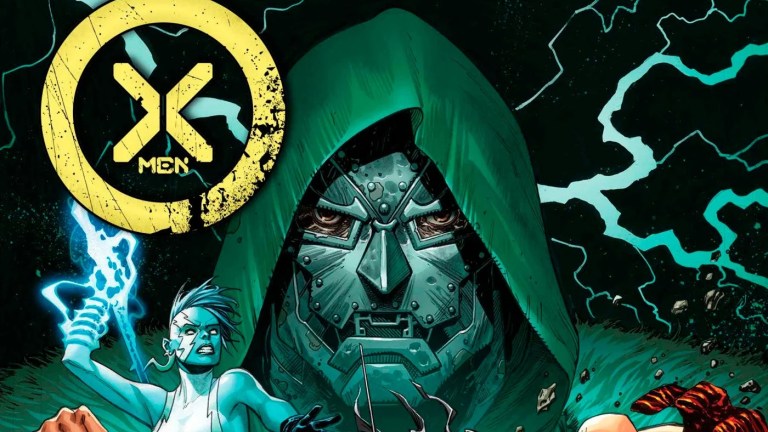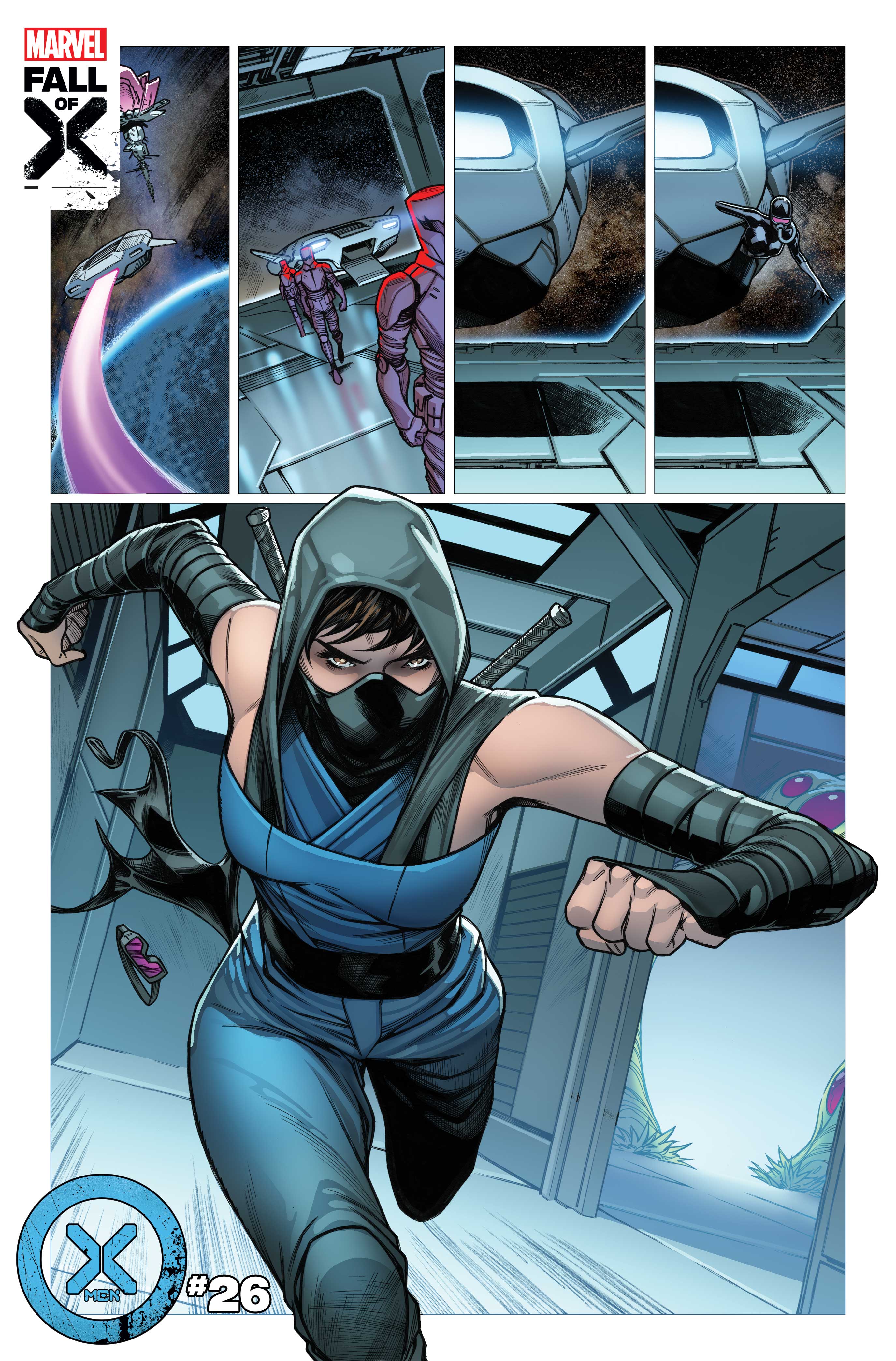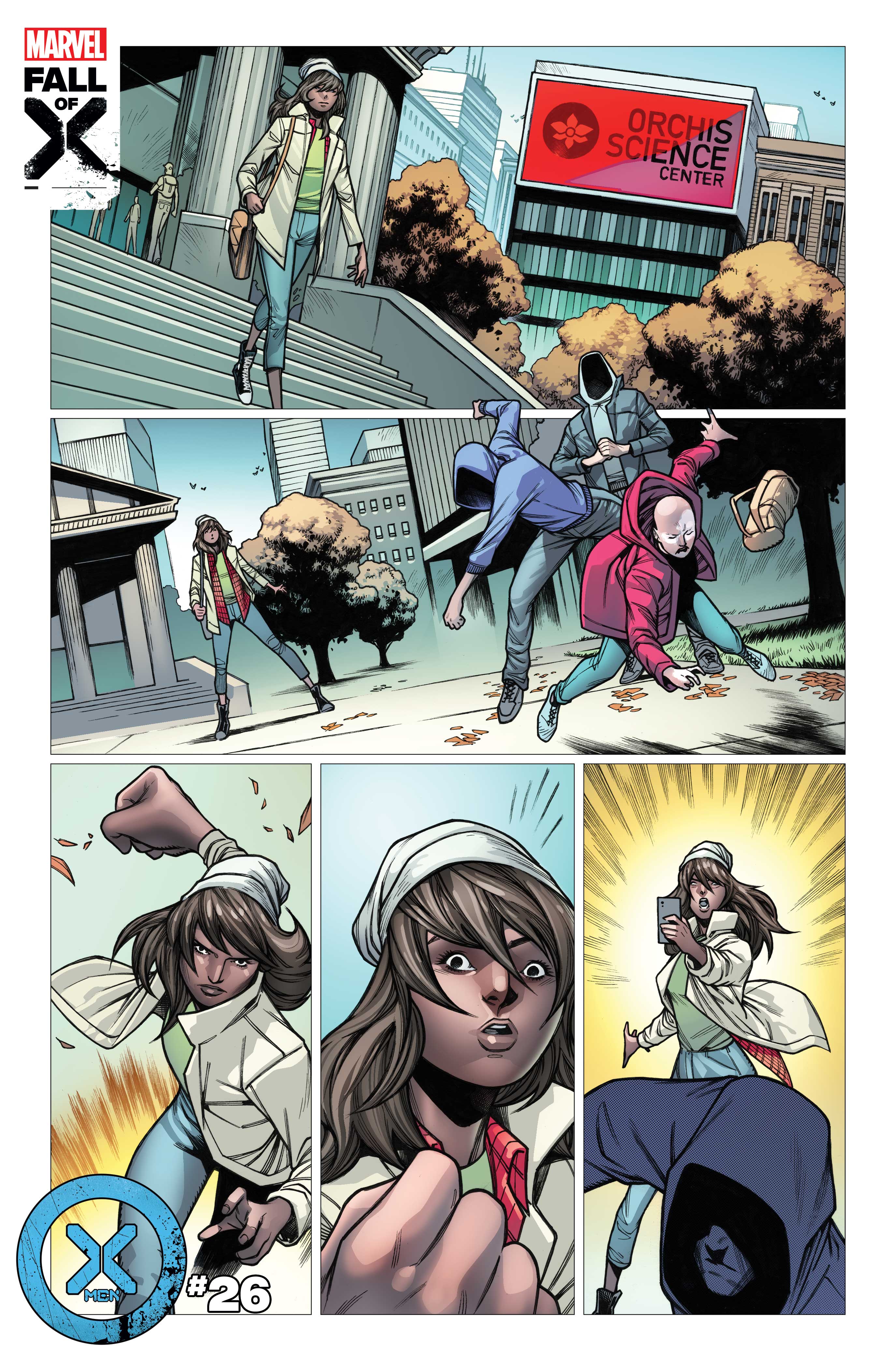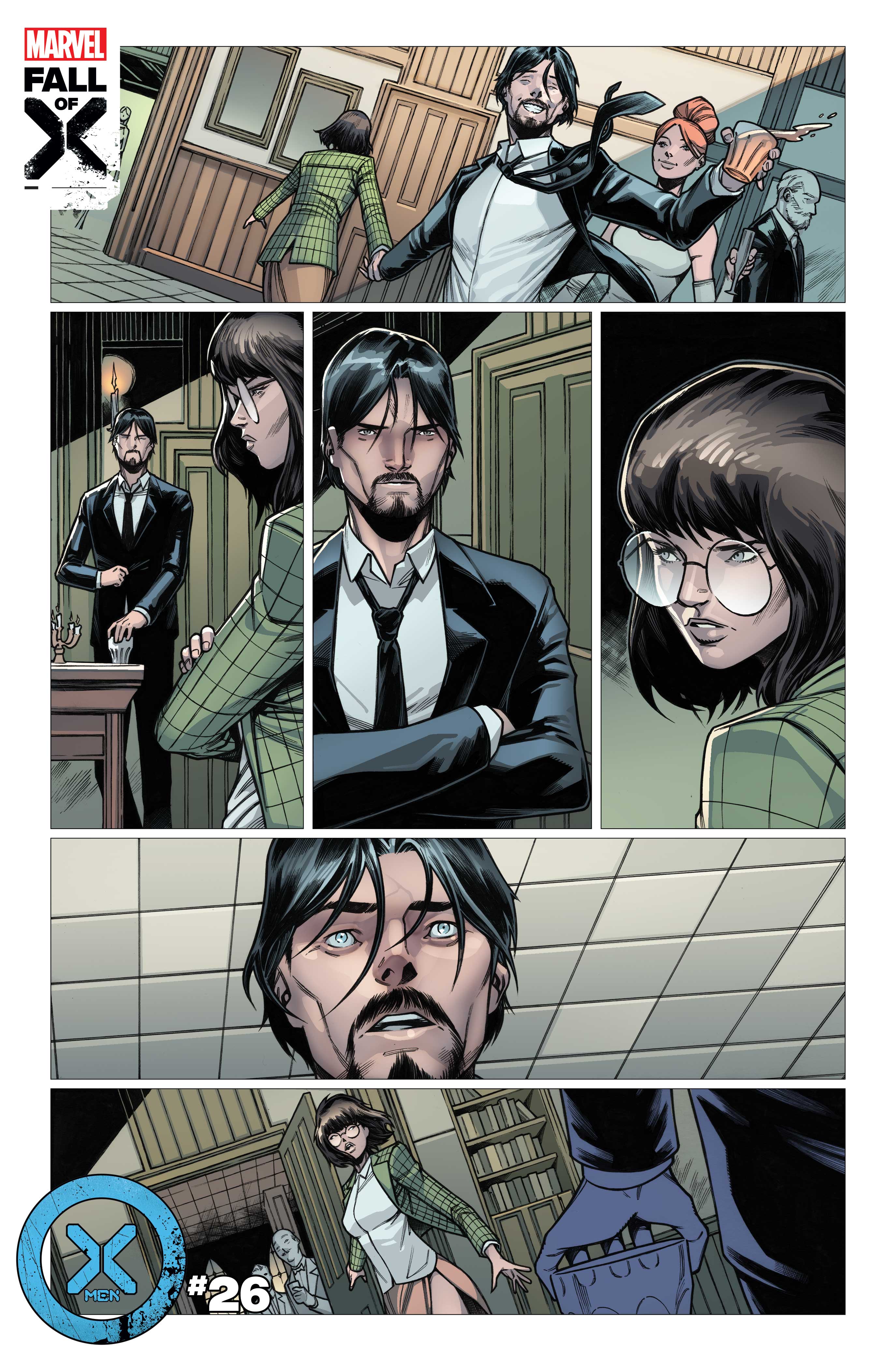X-Men’s Fall of X Is a Villain-Packed Marvel Event Years in the Making
Exclusive: Marvel scribe Gerry Duggan brings us into the absolute chaos unfolding in the world of X-Men's Fall of X comics.

This article appears in the new issue of DEN OF GEEK magazine. Get your copy here.
The Krakoan era has been a golden age for Marvel’s mutants, which is very much at odds with how things usually go for the oft-persecuted X-Men in the comics. And this is why writer Gerry Duggan just up and killed a whole bunch of them. “I think my favorite eras of X-Men are when their backs are just completely against the wall,” X-scribe Gerry Duggan tells us over Zoom.
The status-quo-shattering comic books that kicked off the Krakoan era, House of X and Powers of X, hit like a bolt of lightning in 2019. Masterminds Jonathan Hickman, Pepe Larraz, and RB Silva jumped into a line that, for years, had been conspicuously downplayed by Marvel—the cost of a failure of corporate synergy—and shot it full of new energy, new purpose, and a new mission statement. The mutants—all mutants—were brought together on the living mutant island of Krakoa to form their own nation and project their power as a people out into the rest of the Marvel Universe. Krakoan mutants made drugs that healed humans; they were recognized by human governments as a legitimate international entity, trading with (and occasionally smuggling into) other countries, even projecting culture out into the world with mutant fashion, advertising, and an annual gala celebrating the year of mutant achievements: the Hellfire Gala.
With HoXPoX as a launching point, the X-Office, led by Hickman and editor Jordan D. White, assembled a team—a mix of veterans like Duggan, who has been writing X-Men characters for the better part of a decade on books like Uncanny Avengers and Deadpool, and rising stars—and they let these creators cut loose to weave an epic saga across multiple titles that’s still going strong four years later. The newest phase in the Krakoan story—the Fall of X—kicked off at this summer’s Hellfire Gala with the mass slaughter of mutants (and a bunch of humans) while paying off story threads that were seeded years ago. And it might all mean the end of the Krakoan era as we know it.

Duggan is now deep into an ongoing story that has been allowed to simmer for about 70 issues, and that slow burn has allowed him to continually add crucial ingredients: most recently, turning Iron Man into an X-book, writing an Avengers title into the X-Men line, and putting some real work into revitalizing mutant villains.
“Something wonderful happened [with House/Powers of X],” Duggan says. “But the cost of that was that we were a little poorer of our villains, [who were now] alongside the heroes.” The X-Men have a tendency, as alliances shift and status quo changes, to assimilate, embolden, or make obsolete their mutant villains. To contrast the bad guys who joined up with the X-Men to form a united mutant nation, such as classic villains Magneto and Mr. Sinister, Duggan and crew needed to pit the X-Men against some new heavy hitters—people with resources and skills the mutants didn’t possess and networks that would enable them to do their worst.
The most consistent villains of the Krakoan era have been Orchis, a shadowy agency made up of AIM, Hydra, and SHIELD scientists working to prevent a mutant takeover of the world. “Orchis’ point of view is that Krakoa is an invasive species, and the mutants are a mistake,” Duggan says.
Orchis is, like any bureaucracy, sprawling and occasionally ridiculous. They have HR and communications departments. They sell merch, place opinion pieces in major newspapers, publish press releases, and staff research departments with apes with doctorates; all wildly normal functions of a standard think tank or public policy shop. The policy Orchis is researching and advocating for just happens to be the extermination of mutantkind.

As one would expect from a group with such an openly genocidal mission statement, Orchis members are truly awful. They’ve got AIM scientists perverting Krakoan technology, as MODOK is doing with the Captain Krakoa suit. They have evil geneticist Dr. Stasis sabotaging Krakoan medicine and turning it deadly for the humans taking it. And we haven’t even touched on the looming threats in the background of the organization: Moira X, the cyborg body housing Moira MacTaggert’s 1,500 hundred-year-old, ten times resurrected brain; Nimrod, the deadliest mutant-killing robot in history; and Omega Sentinel, the machine who is trying to change her dark fate after her consciousness was sent back from a bleak future where the machines always lose to the mutants.
In fact, the only thing missing from Orchis and the mutant villain Renaissance is a booming, monologuing regent with a penchant for referring to himself in the third person. Duggan’s fixing that, though. It’s time for DOOM. Victor Von Doom.
“Doom has his own X-Men team, the X-Men of Doom,” Duggan says of the mutant team debuting in the December issue of X-Men. “In ‘House of Doom’…we go right back to Xavier announcing Krakoa to the world and see that conversation from Doom’s point of view. I didn’t intend for it to be very funny, but Victor going ‘Oh, hell no’ is great.”
And then there’s the newest big-name Orchis villain: Feilong, a posthuman businessman furious that the mutants terraformed Mars before he could conquer it, and who decides to take his anger out on… Stark Industries.
“I’m writing a solo Iron Man book that is in my mind, effectively Armor Wars 3,” Duggan explains. “Those first two Armor Wars were really what happens when [Tony’s] enemies get [his armor]. Well, what happens when everyone’s enemy gets your technology?” Feilong manufactures a hostile takeover of Stark Industries, subsumes the company within Orchis, and loads Orchis Sentinels (anti-mutant killer robots) up with Iron Man’s technology, and this makes Tony mad. It also almost fully integrates the main Iron Man series within the X-Men’s narrative.

In fact, one of the most amazing parts of the Fall of X books so far is how integrated with the rest of the Marvel Universe the story is. Orchis is explicitly fascist in the context of this story, making them arguably a more dangerous threat to the broader Marvel Universe than your typical symbiote god or astrally projected ex-lover. “Orchis fascism does not give an inch,” Duggan says. “Every fascism has one thing in common, and it’s that it’s uncompromising. So there was nothing that Krakoa could have done to mitigate or negotiate their way to make Orchis happy.” But who better to fight fascists than Captain America?
Cap returns to the X-line leading the new Unity Squad—a joint task force of mutants (Psylocke, Penance, Rogue) and Avengers (Cap, Quicksilver, and…uh…Deadpool). This team is brutal, dispatching Orchis troops with lots of carving and blood, but as Duggan tells us, “…the aggressor sets the tone for any combat, and it’s kill or be killed” for the mutants. Duggan clearly has plans—the Captain Krakoa story has been bubbling for over a year now, and Orchis has the new mystery CK leading a new Mutant Liberation Front as a false flag operation in Orchis’ PR war. Cap gathers up the Unity Squad to fight all that.
Duggan has spent six years setting all these pieces up on the board and working with some of the sharpest creators in the industry to build a complex, dynamic world for the biggest franchise in superhero comics. He’s got Tony Stark as the Black King of the Hellfire Club fighting to claw his technology out of mutant-hunting robots. Captain America is punching fascists again. The X-Men are on the run, living in sewers as they stage hit-and-run attacks on anti-mutant forces. Will everything pay off? And what does a post-Krakoa status quo look like for the X-Men? “When we leave, I hope everyone says, ‘Wow, they never didn’t have it,’” Duggan says. If things keep hitting the way they have been, that probably won’t be an issue.
